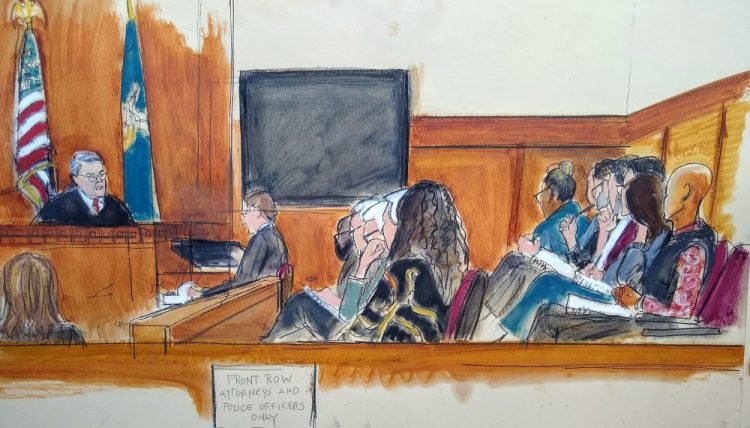Kudos to the Manhattan district attorney’s office, and particularly to lead prosecutor Joan Illuzzi-Orbon and her team, on getting a guilty verdict in the Harvey Weinstein case. As we all recognize, the case was a major challenge.
Placing this verdict in historical perspective makes it even more significant. Until the early 1970s, virtually no sex crimes case could be prosecuted because of onerous legal roadblocks, specifically corroboration requirements. Three elements — identity, force and penetration — had to be corroborated by additional evidence.
I prosecuted my first rape case in 1970. Two strangers, women, were snatched off the streets of New York City’s Lower East Side, and forced to watch each other being raped, sodomized and robbed at knifepoint. Because we could only corroborate the elements of identity and force and attempted penetration, the judge threw out all the sex-crimes charges. (The defendant was convicted of robbery, given a light sentence and went on to rape again.)
That case galvanized us in the Manhattan District Attorneys’ Office to fight for the repeal of all corroboration requirements. It was a tough battle, with a lot of opposition, and took us four years to prevail. Then, sick of rape victims having to recount in the courtroom every detail of their irrelevant past sexual activities, another woman and I wrote New York’s rape shield law, which protects women from much of this humiliation.
The biggest battle, historically, was having people understand that a sex crime is not primarily a crime of sex, but a crime of control, humiliation and degradation. We saw this in the Weinstein case. How do you convince a jury that continuing relationships with your rapist, saying nice things about him, even recanting, and engaging in other seemingly counterintuitive behavior is part of the norm for many victims of these heinous crimes?
The answer may well lie in expert testimony, which we eventually won the right to present in court. Such testimony explains, as in the Weinstein and Bill Cosby cases, why the trauma of rape victims is unique and may cause victims to act this way. The Weinstein jury heard such expert testimony and understood it.
What has not changed very much is the defense strategy of painting rape victims as the guilty parties and the defendant as the true victim, as we just saw in the Weinstein case. This approach may never change, but it appears that jurors are now capable of seeing through it.
Sadly, I firmly believe that Weinstein believes he did nothing wrong and that he is the real victim, the victim of scheming women who wanted to take advantage of him and of the #MeToo movement. Fortunately, 12 jurors found otherwise.
As a sex crimes prosecutor in the 1970s, I shared the heartache of so many victims of these terrible crimes who had to be told their case could not be prosecuted because of unfair laws. I also witnessed their second rape in the courtroom, as they were brutalized by cross-examination about their prior irrelevant sex lives in the few cases that could survive prosecution. It was truly painful.
Hopefully, a new era in sex crimes prosecutions has begun.
Leslie Crocker Snyder is a retired judge of the New York State Supreme Court and founder and chief of the New York County Sex Crimes Prosecution Unit, the first in the nation. She is the co-author of New York’s rape shield law and other sex crimes reform legislation.
©2020 New York Daily News
Visit New York Daily News at www.nydailynews.com
Distributed by Tribune Content Agency, LLC.
Send questions/comments to the editors.



Success. Please wait for the page to reload. If the page does not reload within 5 seconds, please refresh the page.
Enter your email and password to access comments.
Hi, to comment on stories you must . This profile is in addition to your subscription and website login.
Already have a commenting profile? .
Invalid username/password.
Please check your email to confirm and complete your registration.
Only subscribers are eligible to post comments. Please subscribe or login first for digital access. Here’s why.
Use the form below to reset your password. When you've submitted your account email, we will send an email with a reset code.